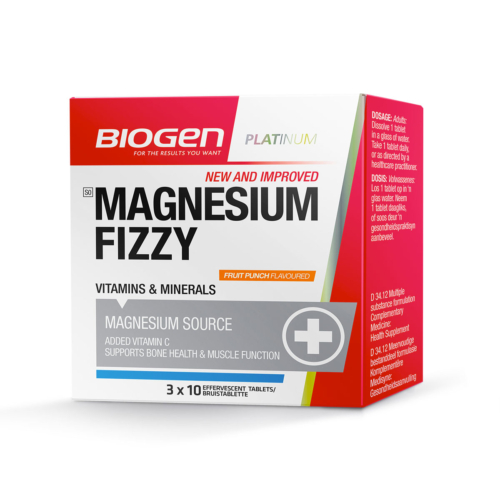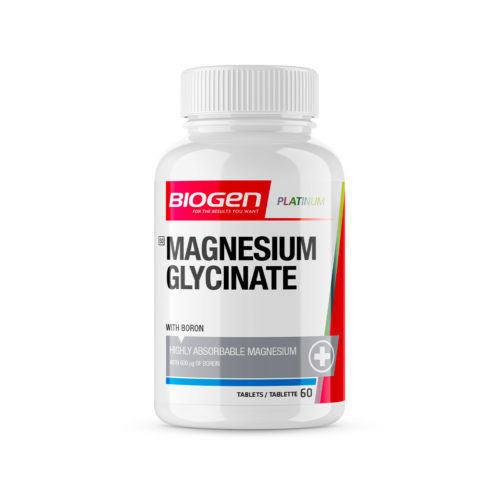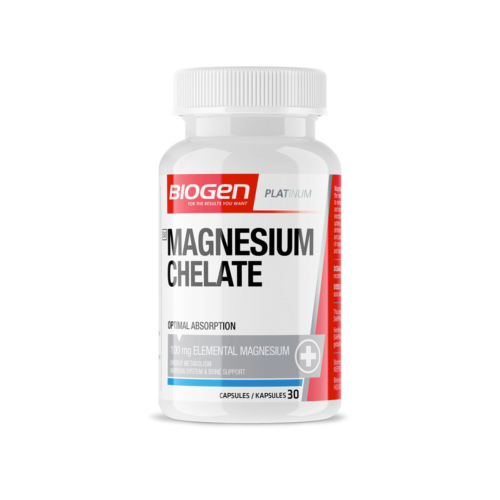
Our bodies need various minerals to function optimally for peak health and athletic performance.
These functions include important tasks that are vital to life, like keeping your heart and your brain working properly, and other important (but less critical) roles like keeping bones, teeth and muscles healthy and helping to make enzymes and hormones.
Magnesium is a particularly important mineral due to the numerous important processes it is involved in, as well as its role in calcium absorption.
More about magnesium
Along with potassium, magnesium is the most abundant mineral found in the human body and is present in every cell type.
About half of the body’s total magnesium is stored inside our cells, with the other half stored in bones and a small percentage circulating in our blood.
Magnesium contributes to normal nervous system function and can help us get better sleep due to its calming effects, which aids recovery and can help to boost performance.
Magnesium is a critical co-factor in more than 300 enzymatic reactions in the body and may play a vital role as an antioxidant, which helps to protect the body from the damage caused by free radicals and oxidative stress.
From a performance perspective, magnesium is an important mineral used in muscle contractions, muscle tissue repair, and maintaining our electrolyte balance, which plays a critical role in proper hydration. As such, adequate magnesium can help to prevent cramps.
Research also shows that adequate magnesium levels can help suppress lactate production (a rate-limiting factor for sustained intensity), and it improves glucose metabolism and availability in the brain during exercise.
Health issues associated with a deficiency
Based on magnesium’s importance in our body, a lack of this important mineral can obviously have a significant impact on our health, general wellbeing and performance.
A magnesium deficiency (also known as hypomagnesemia) can cause muscle twitches, cramps, tension and soreness, and jaw-joint dysfunction. Sufferers also report feeling lethargic with little or no energy.
Deficiencies can also impair smooth muscle function, which could result in conditions like constipation, urinary spasms and menstrual cramps. Other issues commonly associated with magnesium deficiency include difficulty adjusting to bright lights and sensitivity to loud noises.
More serious potential conditions associated with a lack of adequate magnesium include cardiac and vascular diseases as well as diabetes complications, bone degeneration, renal failure, and hypothyroidism.
And a deficiency can affect the central nervous system, leading to common symptoms like insomnia, anxiety, hyperactivity, restlessness, panic attacks, agoraphobia and premenstrual irritability and stress.
Decreased performance
Furthermore, research conducted by physiologist Henry C. Lukaski and nutritionist Forrest H. Nielsen found that “inadequate magnesium is associated with a need for increased oxygen during exercise”.
In the study, those with low muscle magnesium levels were likely to use more energy during moderate activity and tired more rapidly than those with adequate levels. This is largely attributed to the impact a lack of magnesium has on optimal energy production.
Moreover, low magnesium levels can impact energy production by causing calcium deposits that can harden cells and impair mitochondrial function. The resultant reduction in the energy-producing capabilities of these important biological ‘power plants’ can impact our performance.
Dealing with deficiencies
Interestingly, magnesium deficiencies are not only caused by a lack of this mineral in overly processed modern-day diets.
Other factors, like a lack of sleep, can influence intracellular levels of magnesium and can also increase the amount of magnesium we secrete through our kidneys. Low circulating magnesium levels may also indicate an absorption problem.
Other causes include a high alcohol intake, excessive diuretic use, antibiotics and other drugs, excess calcium, the over-consumption of saturated fats, salt, sugar, coffee or tea, as well as insufficient water consumption, a lack of vitamin B6, vitamin D and reduced exposure to sunlight.
As such, it is vital that we meet our minimum recommended daily allowance (RDA) of magnesium, which is between 310-420mg per day.
Getting more magnesium
You can find magnesium in green vegetables such as spinach, legumes, nuts (especially cashews and almonds), seeds, dark chocolate, roasted soybeans, bran, certain seafood, dairy, certain fruits (apples, bananas, peaches and apricots) and various whole grains.
Well-formulated magnesium supplements can also help to support a predominantly whole-food diet and make up for any potential shortfalls.
These supplements include magnesium chelate and magnesium glycinate, and come in various forms including capsules, chews and fizzies to suit different taste, texture and lifestyle preferences.
Magnesium glycinate may offer benefits over other products due to better absorption as it is bound to the chelating amino acid glycine. And chelated magnesium is another highly bioavailable supplement option for those looking to optimise their health and performance.
You can also find magnesium is combination products like Biogen’s Beta-ZMA, which is produced using a blend of zinc monomethionine aspartate, magnesium and vitamin B6.
This specific formulation may help to treat deficiencies in zinc and magnesium that can occur in hard-training athletes. This may result in reduced testosterone levels, poor performance, reduced recovery, cramps and fatigue.
The best option is to speak to your physician before choosing the right magnesium supplement to meet your specific requirements.














